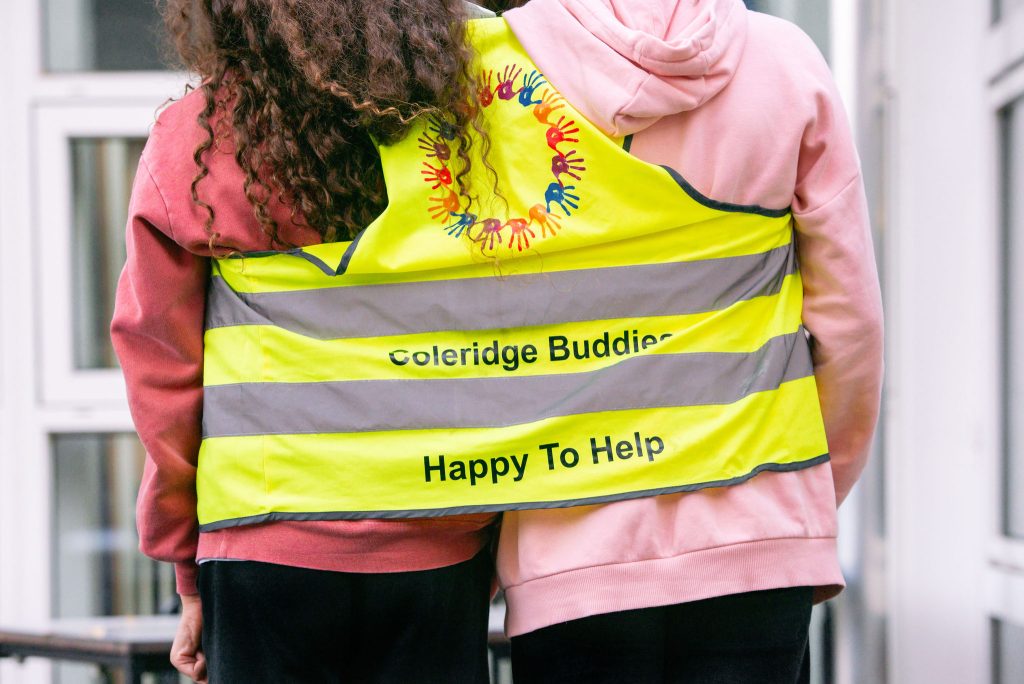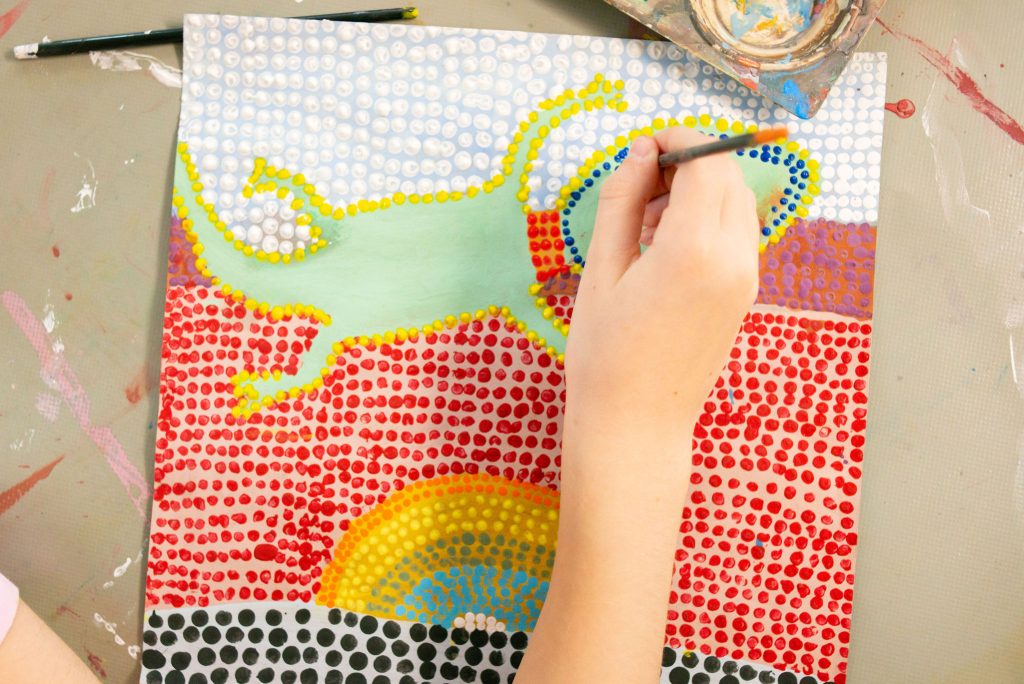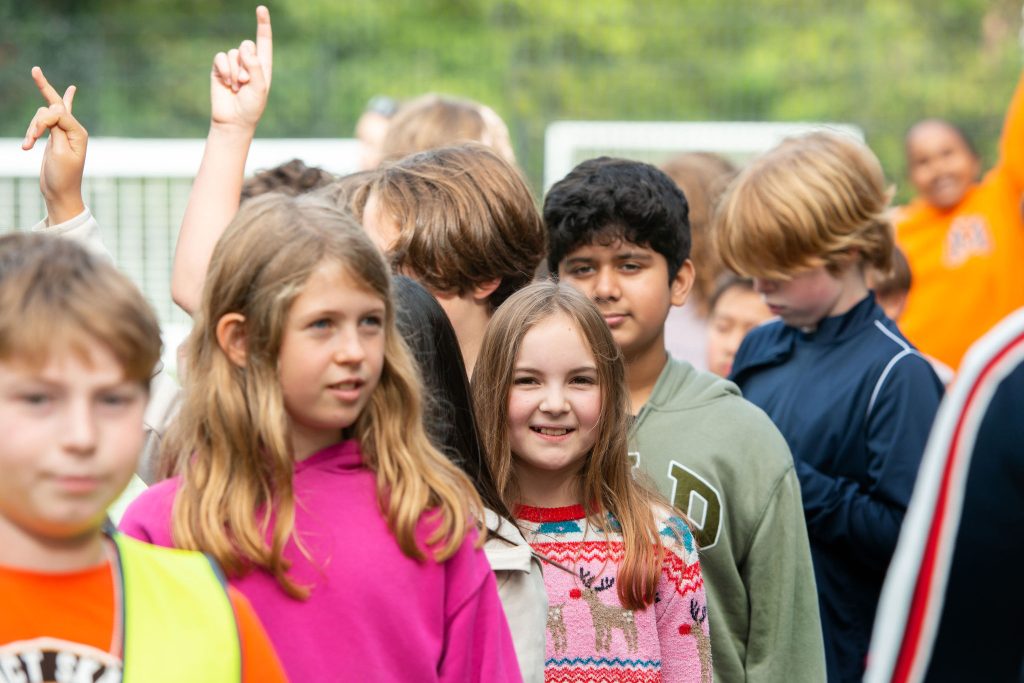At Coleridge Primary we want our children to understand what it is to be a good citizen, to have a thorough understanding of freedom, equality, and fairness. We aim for all children to leave Coleridge well prepared for secondary school, the next stage in their education and for life in modern Britain. The core values of democracy, rule of law, individual liberty, mutual respect and tolerance of different faiths and beliefs are embedded within our curriculum. These values are particularly linked to our school values:
- Caring
- Creative
- Inclusive
- Aspirational
- Resilient
Our school values are promoted through all areas of school life; they are modelled by staff and reflected in displays throughout the school. The school’s reward system is based on the promotion of these values, praising children when they demonstrate one of the values through their approach to learning, behaviour around school and how they treat members of the school community and wider community. Children have ‘Tea with Mr C’ (headteacher), where they have the opportunity to discuss their views on the school, including what they like and their ideas for change. Pupils also learn about the values through assemblies, class PSHE lessons, Religion and World Views lessons.
At Coleridge Primary we promote the development of self-confidence, self-worth and a sense of identity. We give pupils lots of opportunities to reflect on and discuss different lifestyles and facets of identity, as well as encouraging them to ask questions, to challenge inappropriate and harmful ideologies, and to stand up for what they believe is right. Children are actively encouraged to make choices knowing they are in a safe and supportive environment.
Children have the opportunity to be involved in the importance of law when they first join Coleridge Primary by agreeing and establishing their class rules and understanding the importance of following the rules, being involved in the Eco Committee and School Council.
Challenging Discrimination
As a school that serves a richly diverse community, we take our responsibility to promote community cohesion, and generate a respect for difference and individual rights seriously. Our challenging curriculum enables pupils to recognise the valuable role that they play as emerging citizens in British society. We aim to ensure that no one is unfairly or illegally disadvantaged as a consequence of their age, disability, gender, gender identity, sexual orientation, race, ethnic or national origin, disability or religious beliefs.
We plan assemblies and lessons to teach the children about the school values, respecting similarities and differences, tackling stereotypes and discrimination and understanding why some people discriminate. We aim to empower children to have a voice and to stand up against discrimination, valuing equality, tolerance and mutual respect.
Assemblies cover many topics and link to our values in an age appropriate way. Past assemblies have focused on World War 2, Remembrance Sunday, Holocaust Memorial Day, Mental Health Awareness, religious festivals, Cultures of Coleridge, visits by people from diverse backgrounds talking about their career as a positive role model, anti-bullying, online safety, diversity, equity and inclusion incorporating children/adults who have disabilities, plus local police officer visiting school to talk about safety.
We have ongoing initiatives, such as staff workshops about the prevention of homophobic and transphobic bullying in schools. The aim is to stop bullying before it happens by educating young people about difference, challenging stereotypes and addressing the misuse of language.
During our Cultures of Coleridge week, we celebrate the diversity of cultures we have at Coleridge with a Curriculum Week involving parents, children and the local community. We promote diversity of cultures through the curriculum, discussions and displays around the school
We teach the children about asylum seekers and refugees. There have been assemblies to explain about the work of the Red Cross and the poverty some people can face, also the reasons why some people need to leave their home country due to their political or religious beliefs and discrimination.
Children take part in various lessons, discussions and workshops around families and what makes each family special and unique. Stories are shared about the diversity of families, with a view to ensuring that all of our children feel acknowledged and valued, regardless of their circumstances or family set-up. We aim to encourage children to challenge existing perceptions about what a family ‘ought’ to be.
Curriculum
We deliver a rich curriculum that meets the requirements of the National Curriculum. Our curriculum enables pupils to learn that there are many differing views and experiences in the world outside of their own. Our school is enriched by the many different faiths of our school community, and we teach an inclusive World Views – Religious Education curriculum that teaches pupils about the beliefs and practices of all major religious groups, and the shared values that religion can promote in synchrony with the core values.
We reviewed our curriculum and have focused on decolonising the curriculum, ensuring our children learn about the global majority and that we have an inclusive curriculum.
The topics and lessons in the school’s curriculum are designed carefully and planned by teachers to provide a rich learning experience that will have a positive impact on pupils’ spiritual, moral, social and cultural development.
Whilst focusing on all children developing good skills in English and Maths and academic subjects, we also ensure they are taught music, a variety of sports, the arts, outdoor learning and Forest School, in addition to having the opportunity to experience a wide variety of extracurricular clubs.
Educational visits are planned linking with the class topic to provide children with further understanding of the world they live in. We also link with other schools to take part in dance, singing, science and sports competitions. Such competitions provide the opportunity for children to meet other children from different schools whilst experiencing the process of decision making and understanding rules and fairness.
At Coleridge Primary School we want our children to value the importance of democracy and for our children to take a democratic approach in all aspects of school life. Moreover, we take a democratic approach to teaching and learning, whereby students are given the power to make decisions about their own learning, often with the objective of the lesson being ‘discovered’ within the lesson itself, rather than imparted on the children initially. Our democratic approach to education at Coleridge Primary encourages a realisation in pupils that they are valued as people, and that they have a positive role to play in creating a caring community within the school. Relationships between pupils and teachers are excellent as they work democratically together to create a positive environment.
We ensure that the benefits of a democratic society are also addressed through our P4C sessions, RE lessons and curriculum. We also teach our children about forms of governance and political systems. Children are encouraged to share their opinions about decisions that affect the school; for example, a group of children worked with the school and parent volunteers on the design of the playground redevelopment and help to maintain the Leavers’ Garden.
Pupil Voice
Our School Council, consisting of children from Year 3 to Year 6, meets every two weeks to discuss a range of matters, from the core values of our school to the new school lunch menu with our head chef. Ideas to improve an area of school life are generated by the council; other children can also pass on their own suggestions to their class representative. These are then voted for in class.
‘The Coleridge’, our school newspaper, is written by children from Year 5 and Year 6 with support from two members of staff. The children make decisions about the content of the newspaper and the style of reporting they use. They ensure the newspaper is accessible to their entire readership (children and adults) and that it is a true representation of the school. Copies of The Coleridge are distributed to each class and a copy is posted on the school website.
All children at Coleridge Primary are involved in class assemblies where they have the opportunity to share their learning, often through drama, dance and narrative. The children are encouraged to take ownership of their assembly by writing scripts, agreeing on how they present information and supporting each other through the performance.
When there is a General Election or other elections, we use this opportunity to further the children’s understanding of the democratic process. We link with The Electoral Reform Society and a member of the society has visited the school to talk to the children about their work. We plan mock political elections and debates to coincide with elections and arrange for some children to meet the local MP where possible.
Extremism
The school is aware of the need to be vigilant when it comes to any extremist attitudes or behaviour and appropriate actions will be taken accordingly. All staff are aware of the need to alert the Senior Leadership Team and Governing Body if they have any concerns of this nature. The safeguarding leads will be receiving Prevent training from Haringey and they will then deliver training to school staff.
Our overriding aim is to teach children to be resilient to extremism. This involves pupils being taught how to ask probing questions and make sound judgements for themselves about what is right and wrong.
Our History and Geography curriculum is broad, diverse and encompasses the experiences of people across the world and through time. Accompanied with our teaching of Religion and Worldviews and our PSHE curriculum this enables pupils to learn that there are many differing views and experiences in the world outside of their own.


